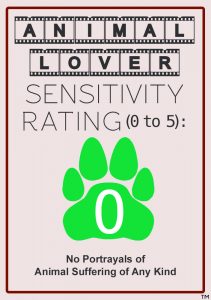
 Ron Howard is one of those directors who is really hard to categorize. He has won an Oscar for directing (A Beautiful Mind in 2002), and has made other well-respected and critically-acclaimed films, such as Apollo 13, but he also is considered one of the most mainstream of the Oscar-caliber directors working today. Howard’s movies tend to be less high-brow than his Academy-friendly counterparts, his movies are for the masses, not for the critics. Beginning with Night Shift, through Splash, Cocoon, Gung Ho, Parenthood, Backdraft, Ransom and Rush all the way to Solo: A Star Wars Story, Howard’s movies have been popular and successful, telling stories of the everyman in a relatable way. His latest, Hillbilly Elegy, is another contemporary look at ordinary people and their struggles in life, and, like every Ron Howard movie, it never gets too dark
Ron Howard is one of those directors who is really hard to categorize. He has won an Oscar for directing (A Beautiful Mind in 2002), and has made other well-respected and critically-acclaimed films, such as Apollo 13, but he also is considered one of the most mainstream of the Oscar-caliber directors working today. Howard’s movies tend to be less high-brow than his Academy-friendly counterparts, his movies are for the masses, not for the critics. Beginning with Night Shift, through Splash, Cocoon, Gung Ho, Parenthood, Backdraft, Ransom and Rush all the way to Solo: A Star Wars Story, Howard’s movies have been popular and successful, telling stories of the everyman in a relatable way. His latest, Hillbilly Elegy, is another contemporary look at ordinary people and their struggles in life, and, like every Ron Howard movie, it never gets too dark and it keeps it simple.
and it keeps it simple.
Hillbilly Elegy is based on the memoir of the same name written by J.D. Vance. Adapted by Vanessa Taylor, the film tells of a boy from Appalachia and his dysfunctional relationship with the two women who raised him, his mother, played by Amy Adams, and his grandmother, played by Glenn Close. Vance’s mother was a drug addict and his grandmother a tough-as-nails, no-nonsense taskmaster, and Vance found himself caught between them, trying to both save his mother and please his grandmother, even as he grew into adulthood.
Taylor’s script is surprisingly colorless, considering the potential for texture in these characters from one of the most colorful parts of the United States, but I figured out early on that the Appalachian appeal is merely just the hook, as these characters may be from Appalachia, but the film is neither set there nor even about the unique type of people who come from there. While there is the attempt to latch the mystery and unique qualities of Appalachian people to these characters, they really end up coming across as not much more than white trash with a flourish.
The main character in the film is J.D. himself, played as a child by Owen Aszalos and as an adult by Gabriel Basso, who is a smart kid just looking to get out of his small hometown and away from his crazy family. J.D. eventually works his way to Yale Law School, but he keeps getting sucked back into the dramas involving his addict mother back home. The story of co-dependence is as old as time and there is nothing new about how it’s done here.
Howard’s ability to make enjoyable movies for everyone and Adams and Close’s incredible skills as actors are what make Hillbilly Elegy even watchable. The only thing keeping this movie from being the Hallmark Movie of the Week is the fact that these three artists are involved. When you see this director and these two co-stars, it almost doesn’t matter what the movie actually is, all that matters is there is an Oscar-winning director working with the two most Oscar-nominated actresses who have never won in a movie where they both get to chew the scenery. Boom. Oscar bait.
Literally the only interesting things in this movie are the performances that Adams and Close give and they are both assured of nominations, if not the wins, for their Academy-friendly performances as stripped-down, suffering mothers. While they are each a bit too much (see my scenery-chewing comment), they each deliver monumentally powerful performances that is scene after scene of emotion, anguish and heartache. It’s an actor’s dream, and, if Charlize Theron, Halle Berry and Allison Janney taught us anything, it’s that playing poor American trash (and making yourself ugly) is usually a path to Oscar glory. If that is true, then Glenn Close will finally see her Oscar drought end as her performance here is larger-than-life and swallows everything else on screen.
If you enjoy powerhouse performances in films that seem to exist just for them, Hillbilly Elegy is for you. Close and Adams make this otherwise bland and unimaginative movie interesting and worthwhile, even if it is the most egregious example of Oscar bait I’ve seen since Ali.
